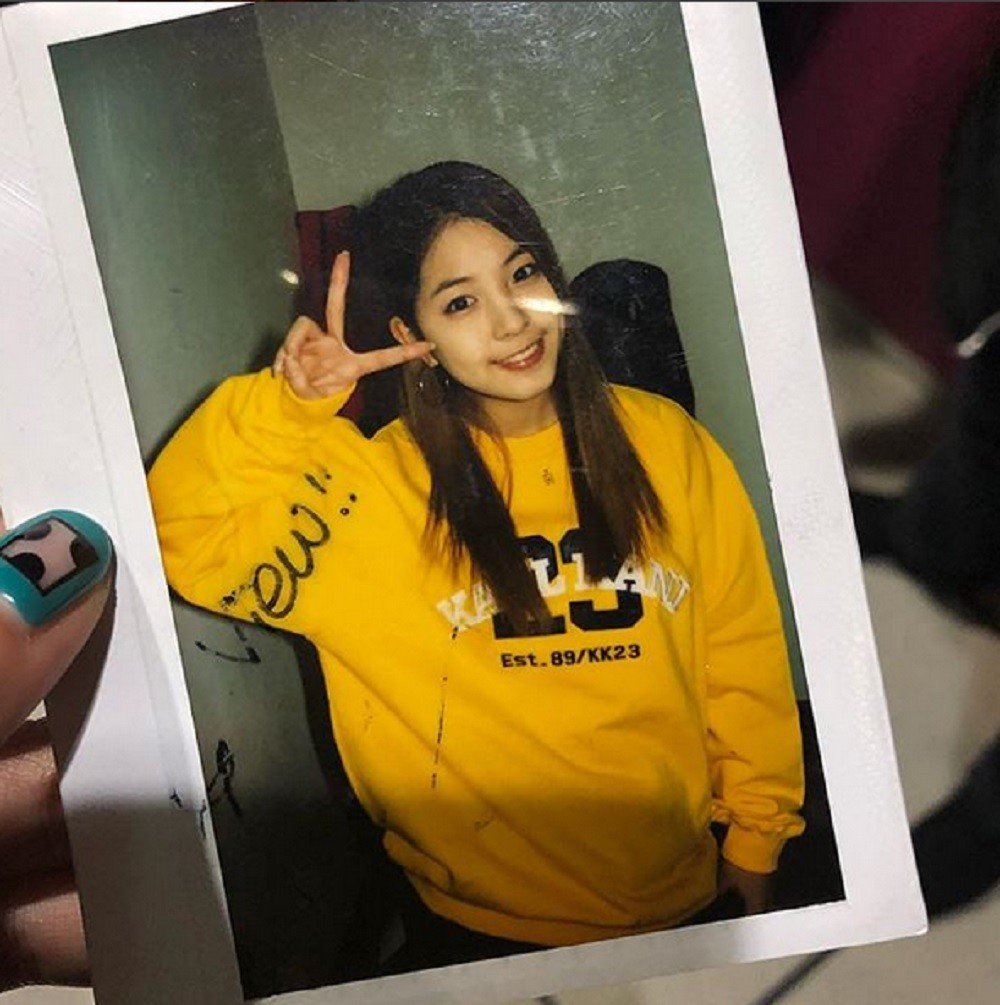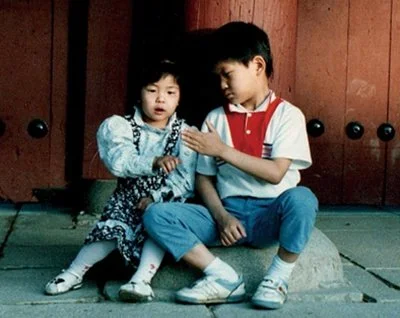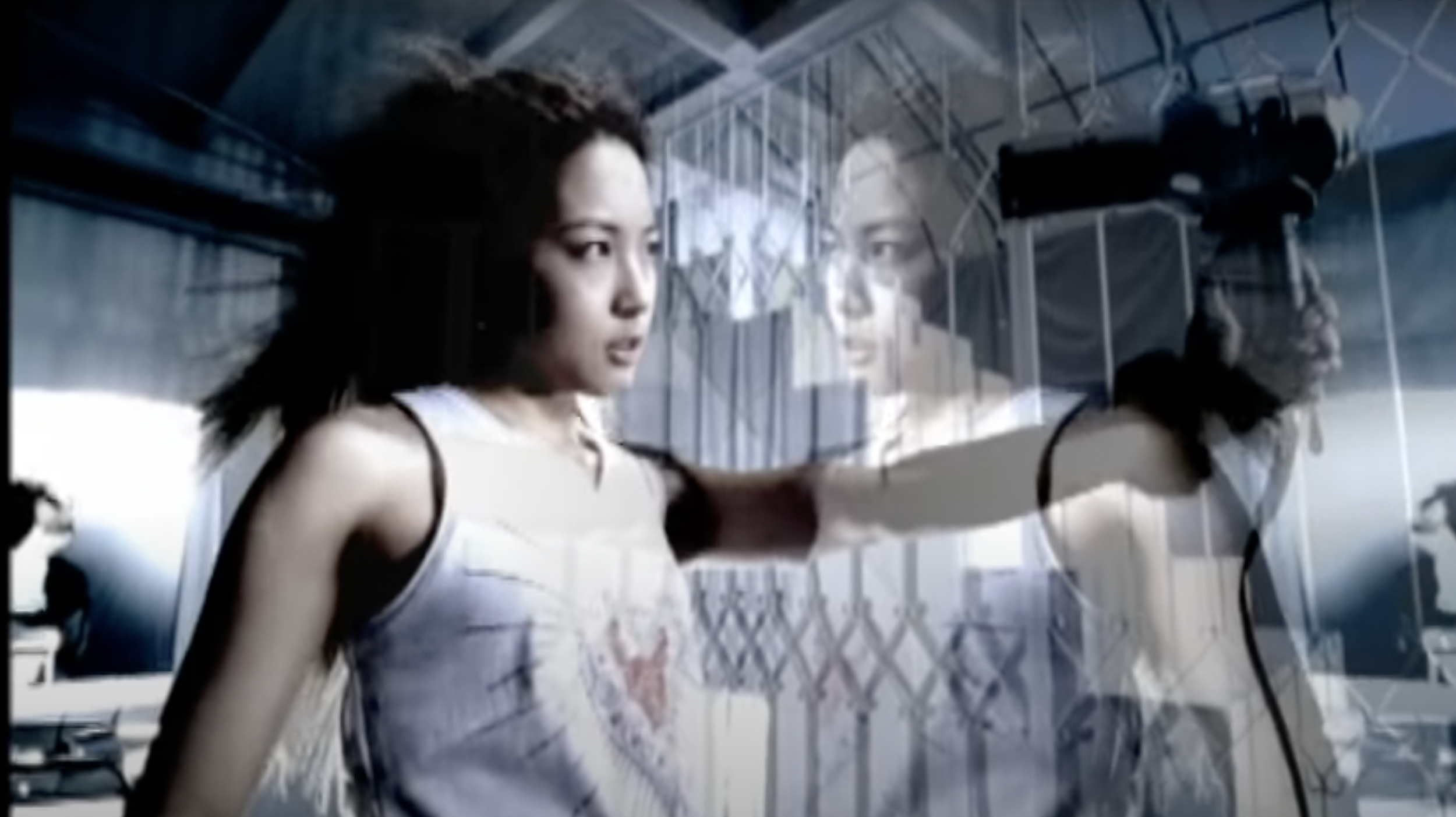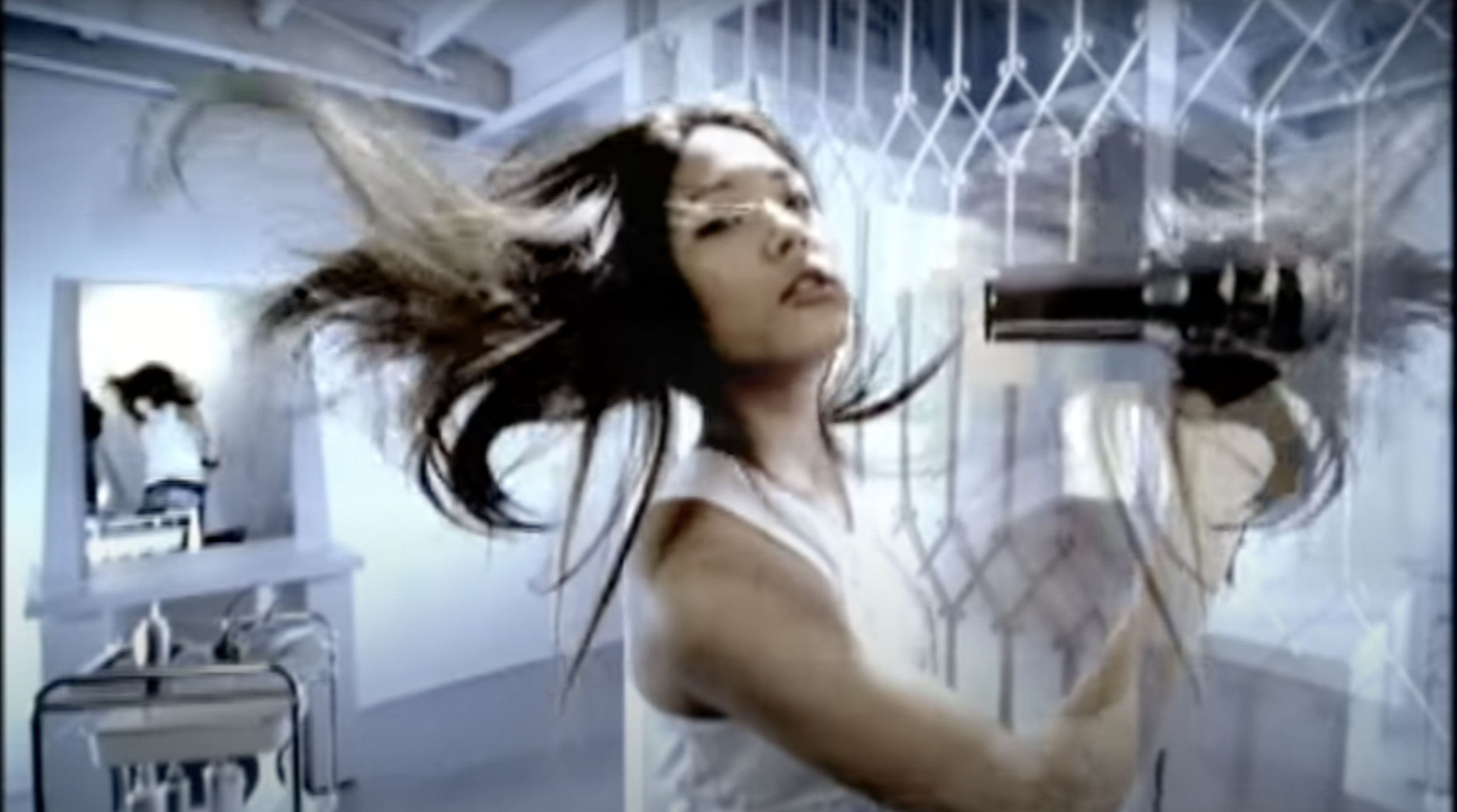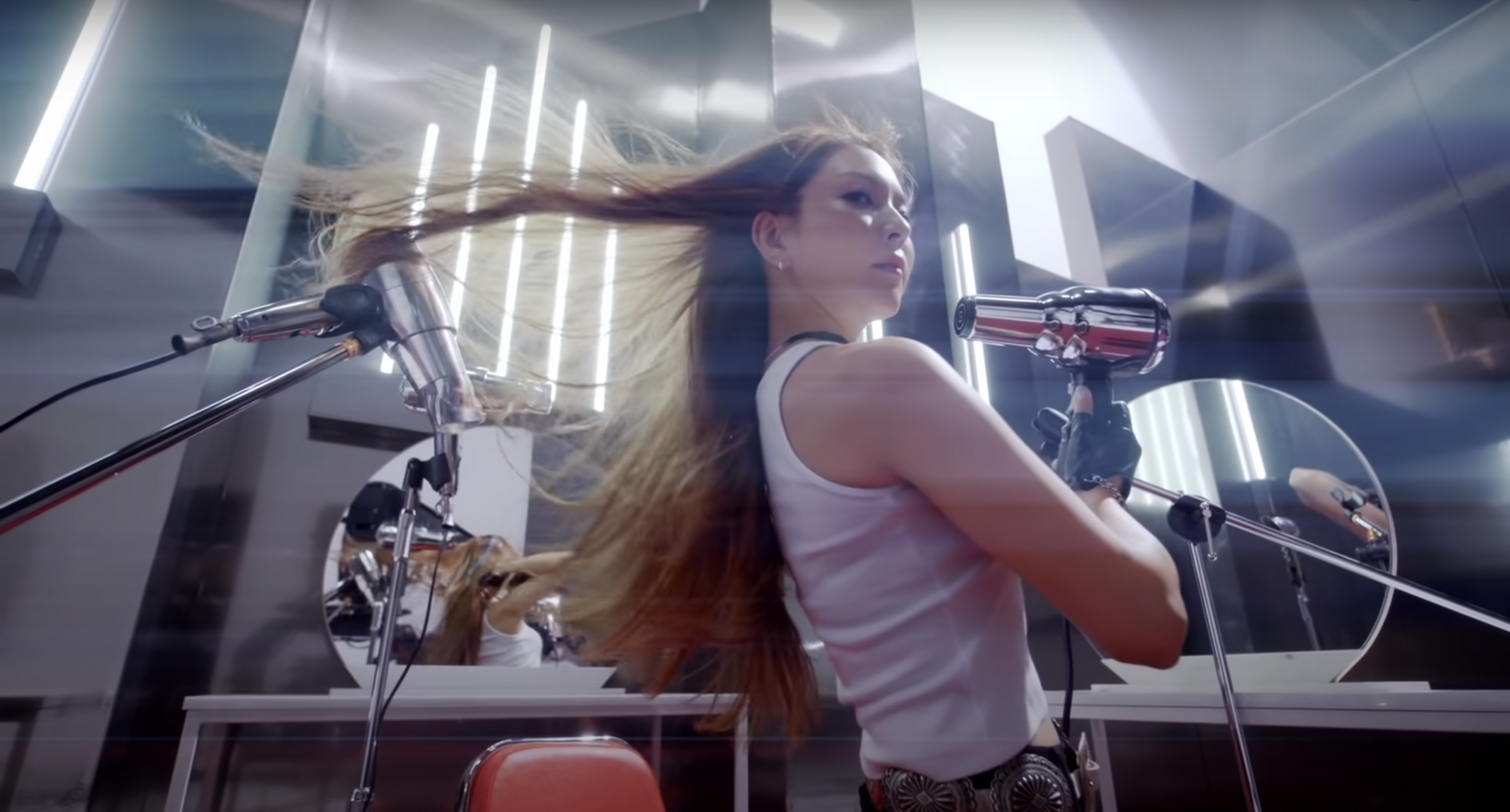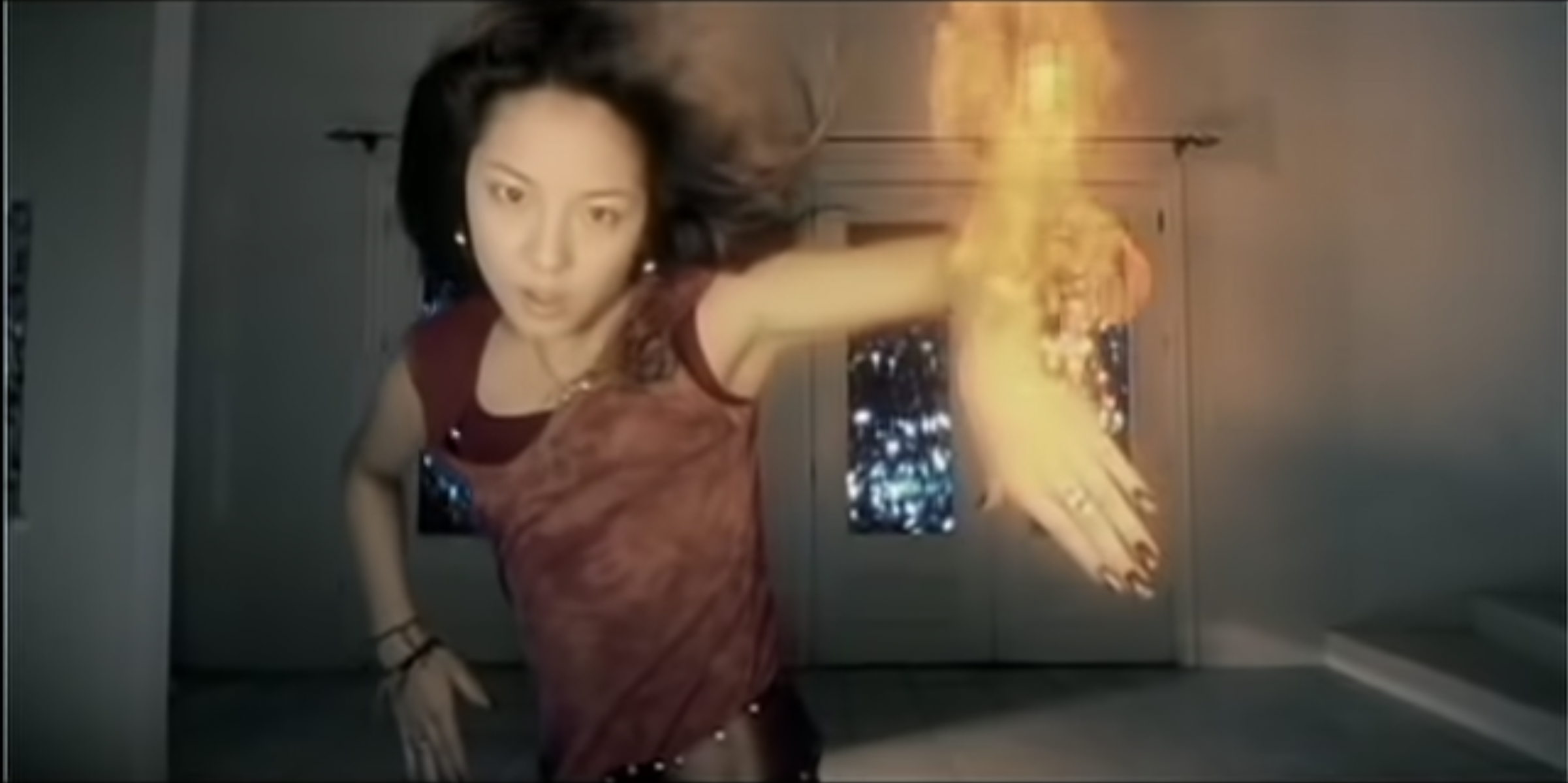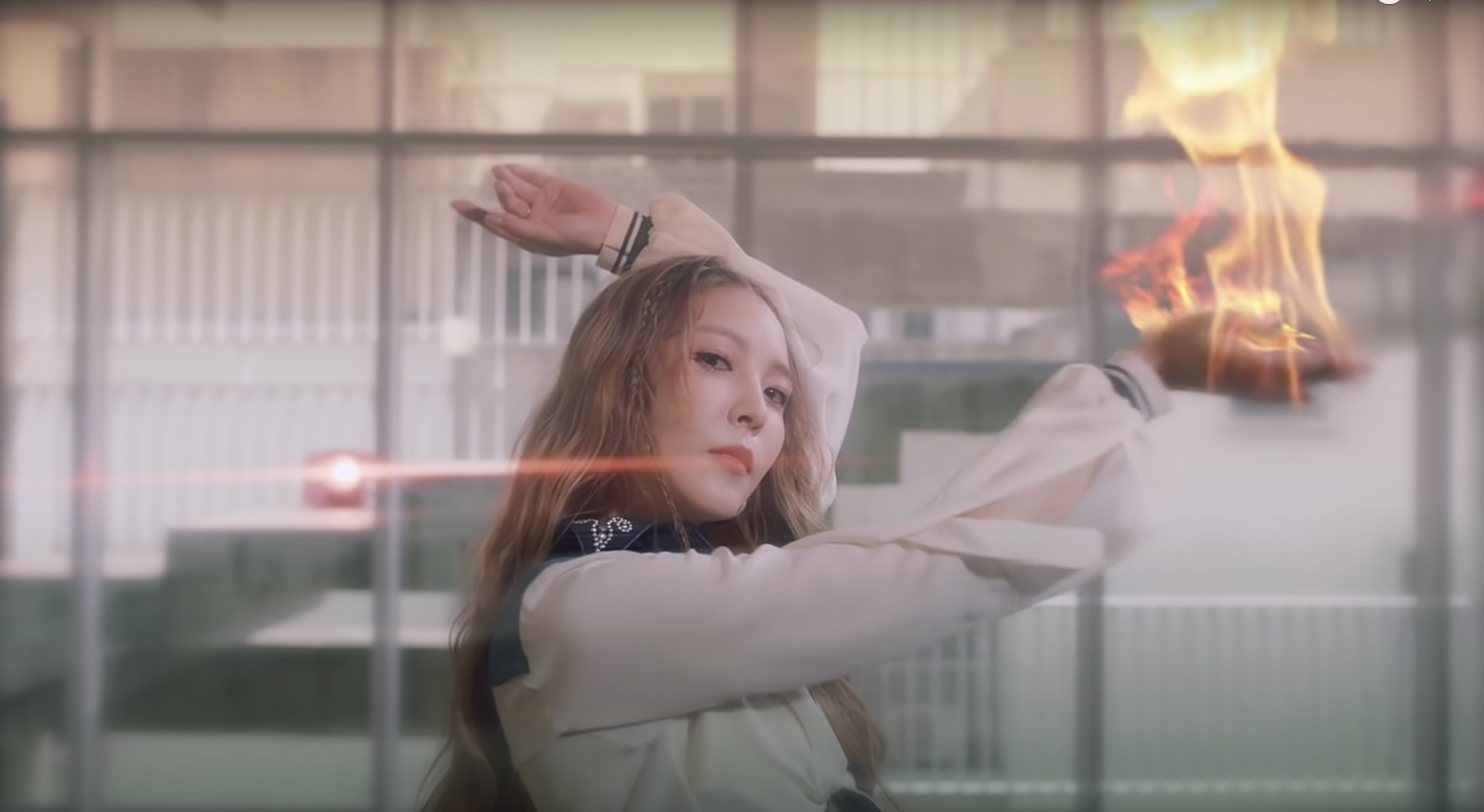BoA in Japan: Breakthrough
Courtesy of BoA’s Instagram, 2018
There’s a Polaroid of BoA from 2000 that I love. She stands in what appears to be an office or recording studio wearing an oversized yellow sweatshirt. A bright, if inquisitive smile, is spread across her face and she’s holding up the peace sign that would become synonymous with K-Pop idols over the next twenty years. Written on the polaroid in BoA’s scrawl is “View!!”.
BoA shared the photo on her Instagram in 2018 and wrote #babyboa as the caption. When I look at the Poloroid today I am filled with a mixture of awe and sadness for her. BoA gave up her childhood to have this career. While most of us were given the opportunity to go to middle school, attend a school dance, or spend weekends with our parents, BoA’s life was extraordinarily unique. At fourteen she was sent to live in Japan, a foreign country, without the care of her parents or older brothers, to record an album that her labels SM Entertainment and Avex Trax hoped would create the biggest pop star of her generation.
BoA was lonely, to be sure, and for the first year, the labels’ marketing plan was not working. It was all a bit overwhelming, then, when her album “LISTEN TO MY HEART” finally catapulted to number one, seemingly out of nowhere. BoA was back home in Korea studying for her high school entrance exam when she got the call to return to Japan.
“Maybe miracles do exist,” BoA said with a laugh when she remembered how successful the album was. “My first album, a million copies sold.” She lifted her hands to show how quickly and broadly her life changed in an instant. “BAM!”
BoA and her brother Kwon Soon-wook, “The Golden Rule” by Sung Youngja
“My mom says that even as a child, I had a strong sense of responsibility,” BoA recalled in 2010.
BoA’s hard working instincts came from her mother, Sung Youngja. Youngja was an intuitive woman who worked as a ranch operator with her husband in Namyangju, a city with strawberry farms and a large dam, located to the east of Seoul. Finances were tight for the Kwon family. They lived in, what Youngja would describe in her autobiography “The Golden Rule”, as a “flimsy home” with no heating or air. The house was so poorly insulated that in the winter months, the family would wake up with icicles in their hair.
But BoA learned from a young age how to persist; how to take the pieces of her life that were fractured and soothe over their rough edges. This ability to move forward came from her mother.
Soungja taught her children how to survive on very little. Even after becoming a wealthy singer, BoA took the frugal lessons of her mother to heart. “She still calls me to ask permission to buy things,” Sung said proudly in 2010. She learned to be cautious with her money, and to understand that her success was not sheer luck.
BoA as a child, “The Golden Rule” by Sung Youngja
The Kwon family found wealth in the arts. BoA wouldn’t listen to a physical CD until she signed with SM in 1998, but music abounded in her life. “We were always a musical family,” she said in the same interview. “My older brother was into classical music and my second older brother was into B-boy dancing when we were young.”
BoA was close with her older brothers, Soon-hwon and Soon-wook. Often she would practice singing and dancing with Soon-wook, a boy who was fascinated by hip-hop. On the coldest of days, when the wind could cut to the bones, the Kwon family would dream of escaping poverty. “The three of us buried a time capsule in the backyard at our house in Namyangju and each of us wrote down our dreams. I remember writing down that I wanted to become an internationally-recognized singer,” she said.
Decades after the Kwon family left their home in Namyoungju, BoA would still think about digging up the time capsule. In adulthood, she would collaborate closely with Soon-wook, filming videos together and allowing Soon-wook to shape the image of BoA, the singer. But last year Soon-wook passed away from a rare form of cancer. “My brother and best friend Soon-wook oppa… Thank you for being born as my older brother,” she wrote on Instagram the day following his passing.
The time capsule, pinned with the hopes and dreams of the Kwons’ childhood, remains buried in Namyangju.
As BoA’s plane descended on Tokyo in early 2002, a full year after her first attempt at breakthrough, I wondered what was on her mind. She had succeeded: She was the first Korean to become number one on the Japanese charts. But how much of that actually mattered to a fifteen year old? She was forgoing high school, and would later drop out of school entirely, to see this dream through. She was called back again from her home and family, this time for good, to represent Korea.
“I’ve never regretted anything I’ve done professionally. I’ve been too busy to dwell on regret,” she would flatly tell a reporter in 2010. Indeed, time was not something BoA had on her side as a child. As an adult, BoA bristles at painting her childhood in entertainment as difficult. She was lonely but she got through it. That’s what mattered.
But in 2002, BoA was at least returning to Japan with some experience to guide her. A year since her debut had freshened the teen’s grasp on Japanese culture and language. She could speak fluently now, bar a few hiccups, and was given the opportunity to write her own music, a talent that she would grow throughout her career.
One particular exchange on a Japanese variety show reflects the wit and quickness BoA had developed throughout her sojourns in an alien world. Staged in a hotel room, BoA sat on a plush white couch with an outrageously flamboyant male host who was eager to discuss “LISTEN TO MY HEART”.
“What was the most difficult part of recording the album?” the host asked her gamely.
BoA smiled and replied with an answer she had likely prepped. “Enlarging my liver was the most difficult part,” she told the MC. It was a mistake.
“Enlarge the liver?” he repeated, a slick smile spread across his face, as a laugh track played.
BoA panicked and looked off camera to her manager.
“Adjusting your emotions,” her manager responded. BoA laughed it off. “That was hard!” she exclaimed. She turned and dramatically adjusted her body towards the camera to let the audience know she was in on the joke. She repeated her answer, this time barely withholding an eye roll: “So adjusting my emotions was the most difficult part!”
It was in exchanges like this where her teenage personality broke through. This was the girl who her managers would tease BoA about as an adult. “You complained so much,” they’d tell her and BoA would laugh. But she was a child! She wasn’t going to be perfect. So she would push back, politely but with some punch, and say essentially, “I just learned this language a year ago – with no help from my company! So I'm doing the best I can!”
“It all seemed so strange,” BoA remembered in 2020. “I was going on [variety] shows. People started to recognize me.”
“LISTEN TO MY HEART” integrated BoA fully into Japanese culture. Her most popular ballad from the album, “Every Heart”, was featured prominently in the anime series Inuyasha. For many fans of BoA, this song would become a staple of their childhood. Ask nearly a lifelong BoA fan and many will tell you, this was the first song of hers they heard. Why does BoA’s music sometimes sound like the best Saturday mornings of our childhood? Because of this.
One of the most striking visuals from “LISTEN TO MY HEART” was from the music video which is set in an avant garde hair salon. In the most memorable moment, BoA grabs a hair dryer and transforms into a fashion model with 360 shots of her hair being blown out. It was a strange, if a little baroque, image. At times I wonder if the hair dryer mimicked a microphone; other times, it simply feels like a gimmick her management created for a striking visual. The image would be parodied – and recreated by BoA herself in 2020 – but the oddness stuck. Maybe today it represents something subtle: BoA’s youth. The same girl who buried her dreams into a time capsule and who likely sang into her hairbrush at home was now a superstar.
Chairman Lee’s dream of transforming a child into a superstar by the time she was sixteen came into realization with “VALENTI”. Released one year after as the follow up to “LISTEN TO MY HEART”, the single would be certified gold by the Recording Industry Association of Japan (RIAOJ) with over 202,000 copies sold. By year-end it would be the highest selling single in the country.
Screenshot from “VALENTI”
The music video for “VALENTI” is one of my favorites as it relies heavily on the teen’s magnetism and skilled choreography to captivate us. Set inside an empty mansion, BoA dances in a bright red top and dark jeans, but near the end of the video, BoA becomes magical: As she dances, fire flows from her hand. When she recreated this video in 2020 as a 33-year-old woman, BoA used fire again in the choreography and this time the choreography felt assertive and powerful. She didn’t look like a teen who just discovered her powers, but a woman exerting them with ferocity.
Screenshot from “BoA 202020”, directed by Kwon Soon-wook
The effects of this one-two-punch success was almost instantaneous. BoA was no longer a precocious struggling child star; she was now the most important and recognizable teen in Asia. To capitalize on the success, in the spring of 2003, she embarked on her first tour titled “1st Live Tour 2003 – VALENTI”, which traveled to three cities across Japan and was attended by 40,000 fans. BoA became so integrated into Japanese culture that many mistook her for Japanese.
The music, too, seemed to reflect her ascension to superstardom. VALENTI opens with “NO.1”, a song that feels autobiographical. “You’re still my number one, When the full moon goes away/ The sad light will be smaller because of me,” she tells the listener, which in either context could be a fan or a boyfriend.
The song’s emotional center has only grown with her: She performed the single frequently as a melody with her 2012 single “Only One” during her 20th anniversary in 2020. But the messaging was clear even in 2003: There is no one like BoA. Her magic can’t be recreated.


